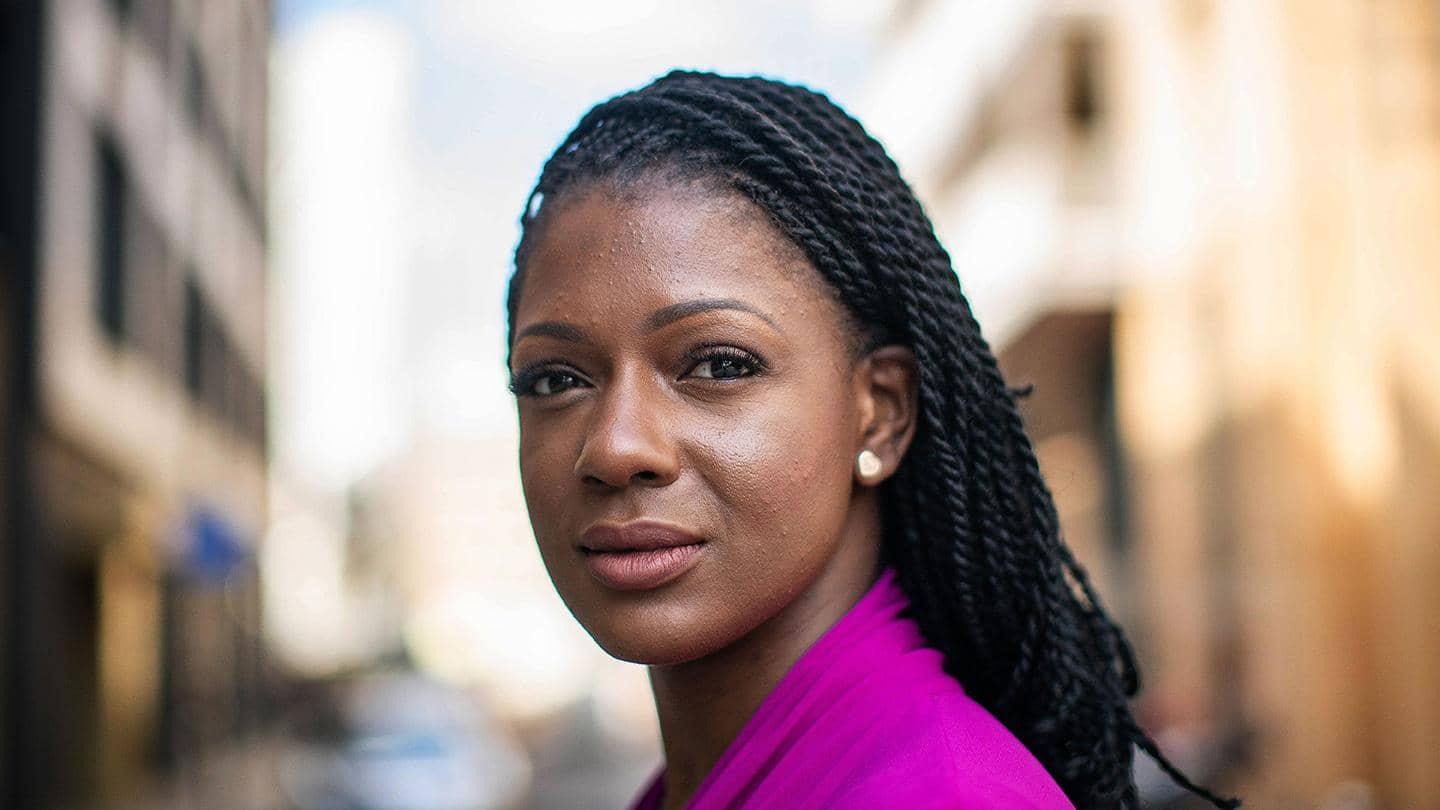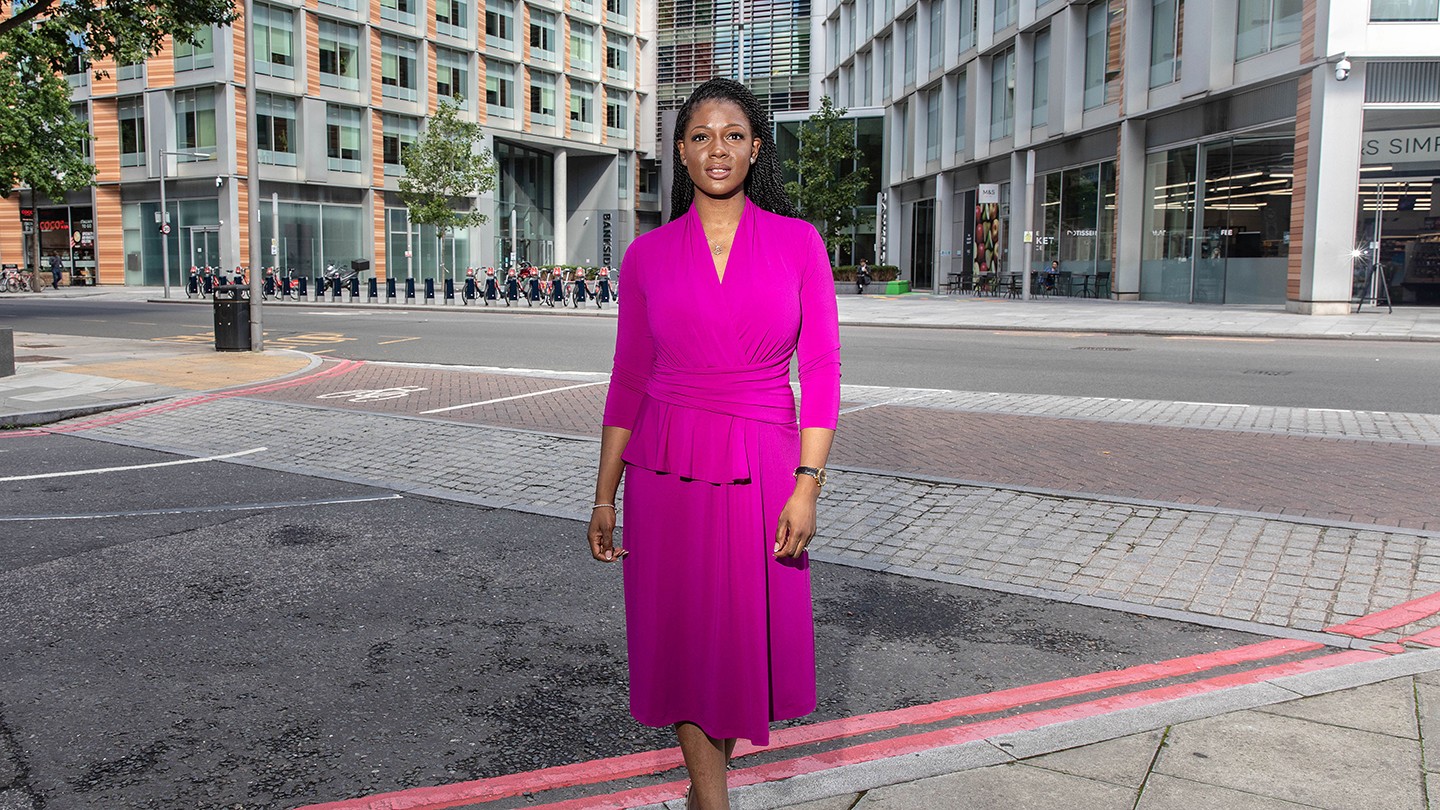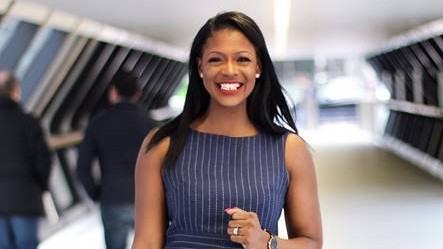
Culture
Launching Barclays' socio-economic inclusion agenda
Hannah Awonuga, Barclays’ Global Head of Colleague Engagement, Diversity, Equity and Inclusion, is leading work on the bank’s new socio-economic inclusion agenda. She discusses why she’s passionate about helping talent from diverse backgrounds to thrive, how the organisation is encouraging change in the industry – and the powerful stories she’s heard from senior leaders.
As Global Head of Colleague Engagement, Diversity, Equity and Inclusion at Barclays, Hannah Awonuga plays a crucial role in building a diverse and inclusive work culture that supports all colleagues. But, when she joined the bank as a cashier aged 17, she says she felt as if nobody in the industry “looked like me, nobody sounded like me – and it seemed like nobody came from the same background”.
Reflecting on the early stages of her career, Awonuga explains: “I was hiding a part of myself, not wanting to truly be myself because of my economic background – and that’s still a reality for a lot of people.”
It’s one of the reasons why leading work on the new socio-economic inclusion agenda is so important to her. “If we want to be truly inclusive,” she says, “we need to make sure that we are supporting our colleagues from all backgrounds, all races, all cultures and orientations.”

The socio-economic inclusion agenda will help to ensure that Barclays is “truly inclusive”, says Awonuga.
I was hiding a part of myself, not wanting to truly be myself because of my economic background – and that’s still a reality for a lot of people.
Global Head of Colleague Engagement, Diversity, Equity and Inclusion, Barclays
Research on eight financial services organisations in 2020 by non-profit consultancy Bridge Group found that 89% of senior level employees were from professional backgrounds. Those from non-professional backgrounds were found to progress 25% slower than their peers, with no evident link to performance – a figure that rose to 32% for employees also identifying as Black. Tackling these barriers is vital to the success of Barclays as a business, adds Awonuga, because “diversity of thought leads to better organisations” that understand the customers, clients and communities they serve.
While socio-economic inclusion is a recent addition to Barclays’ Diversity, Equity and Inclusion (DEI) strategy – joining multicultural, gender, LGBTQ+, disability and multigenerational pillars – the agenda builds on the bank’s existing work in this area. “As an organisation, we’ve always worked with underserved communities,” Awonuga says. This includes work through LifeSkills (a skills and employability initiative) and Connect With Work (a programme connecting jobseekers with businesses), alongside other community outreach activities. “But when Ray Dempsey joined Barclays in 2021 as Group Chief Diversity Officer and looked at the strategy, it felt like the right time to expand the focus.
“Our role is to mobilise change within financial services”
Inspire – a global Employee Resource Group (ERG) focusing on social mobility – will play a key part in the bank’s socio-economic inclusion agenda. The ERG offers colleagues a space to share their stories and experiences, alongside dedicated masterclasses covering topics like confidence and stakeholder management.
“From a strategic perspective, we are focusing on giving colleagues the right tools to be able to thrive in the workplace,” says Awonuga. “So we’re also thinking about how to equip leaders to be able to support that."
Another priority is ensuring potential new talent from all socio-economic backgrounds has access to internships and apprenticeships. As part of these efforts, the recently launched Discovery Programme offers students from under-represented groups the opportunity to learn more about careers at Barclays – and allows participants to apply for internships early.
The bank is also part of the City of London socio-economic diversity taskforce, which was commissioned by HM Treasury and the Department for Business, Energy and Industrial Strategy. Launched in May 2021, the initiative is designed to increase socio-economic diversity at senior levels in financial and professional services in the UK.
“Our role is to mobilise change within financial services as part of the taskforce,” Awonuga explains. “It means that we are committing to supporting our colleagues, our business and our industry from a socio-economic perspective.”

Awonuga hopes support from the agenda will enable colleagues to “bring their whole selves to work”.
We can help nurture the resilience, the resourcefulness, the passion and all those skills you have which will be valuable for an organisation like ours.
Global Head of Colleague Engagement, Diversity, Equity and Inclusion, Barclays
Taking the next steps
Formalising the agenda and getting support from the bank’s leadership ultimately means that more colleagues will feel able to “bring their whole selves to work”.
“We've already heard some really powerful stories from senior colleagues, talking about the challenges they face because of their background, whether that is their accent, or the area that they've grown up in,” says Awonuga.
But she acknowledges that the organisation is “on a journey”, and that there’s plenty of work still to be done: “We need to understand colleagues more. We have a lot to learn – but we are learning and building on the way.”
Looking forwards, she is particularly excited to play a part in fostering talent at Barclays – and welcoming new colleagues to the bank. She encourages anyone considering a career in the industry to think about how they can transfer their skill set to a new context.
“I tell people, ‘you already have the skills, you just don’t know it’. We can help nurture the resilience, the resourcefulness, the passion and all those skills you have which will be valuable for an organisation like ours.
“We want you to recognise your own potential, but you've got to take the first step and apply to join us. We’re working to make sure that when you arrive we have an inclusive culture for you. That’s what the socio-economic inclusion agenda is about.”